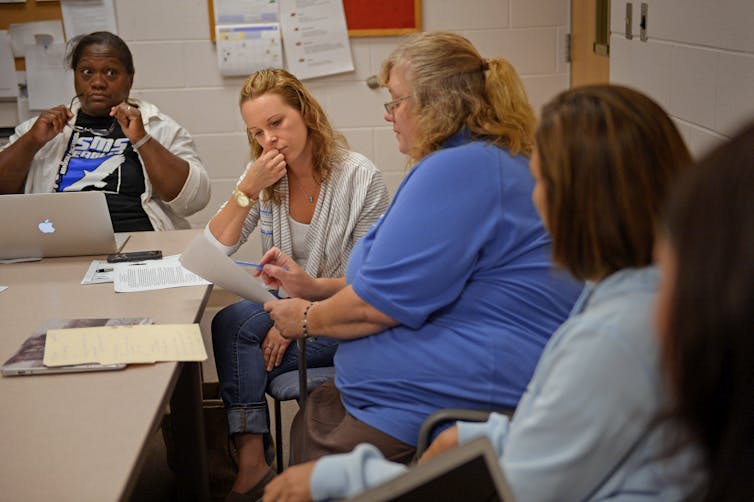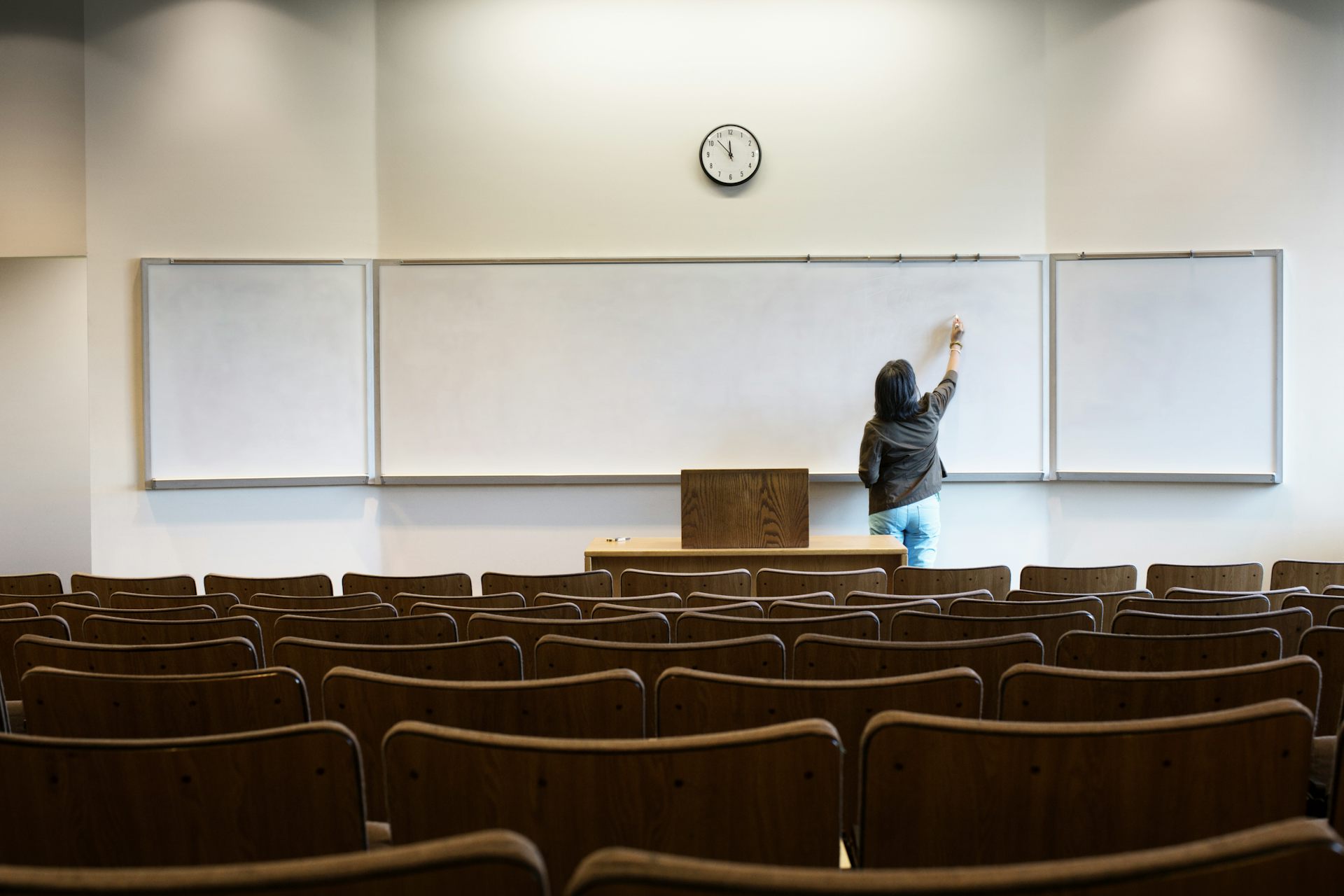Pandemic shut down many special education services – how parents can help their kids catch up
The US Department of Education says special education students who missed out on services during the pandemic are likely eligible for additional help to make up for what was lost.

When schools shut down in March 2020, many of the nation’s roughly 7 million students in special education didn’t get the special education services to which they were entitled under federal law. The law requires these services to be provided even during special circumstances, such as the pandemic.
School districts may have fallen short of providing special education services to eligible students with disabilities during the pandemic. For example, the Los Angeles Unified Public School District has been cited by the U.S. Department of Education for failing to provide appropriate special education services to students with disabilities during the pandemic. As a result, the district will have to provide, and pay for, services to make up for what wasn’t provided.
More broadly, the U.S. Department of Education says special education students who missed out on services are likely eligible to get additional services meant to make up for what they missed.
But even though most of the nation’s schools have resumed in-person classes, they have had trouble getting enough staff to provide all the services that are needed.
As a scholar of special education, I have some insights on how parents and students can get the services they are entitled to receive, how to make the most of those resources and what to do if they feel that schools are failing to deliver.
How did all this start?
As recently as the early 1970s, many states allowed school districts to exclude students with disabilities from school entirely, or to put them in separate classrooms from students without disabilities.
In courts and legislatures across the country, parents fought for their children’s educational rights – and won.
In 1975, Congress passed and President Gerald Ford signed the Education for All Handicapped Children Act. Sen. Harrison Williams, the bill’s chief sponsor, declared, “It is time for Congress to … provide to all handicapped children their right to education.” In 1990, the act was renamed the Individuals with Disabilities Education Act and is now commonly known as IDEA.
What are students entitled to?
The law requires that all students with disabilities be provided with what is called a “free appropriate public education,” one specifically developed to meet their individual educational needs.
Congress requires school districts to work with parents of students with disabilities to develop an individualized education program specifying the exact assistance and accommodations each student needs. For instance, a student with a disability that makes reading difficult for them may receive an hour a day of specialized reading instruction. These IEPs are legal documents, and schools are obligated to provide those services.
The law also provides funding to help states pay the additional costs of providing those supports.

What can parents do to ensure their kids get what they need?
Congress intended that parents be involved in the development and implementation of their child’s special education program.
The law requires parental consent for any testing or other evaluation that may help determine what a student’s needs are or what interventions might help them. In addition, school district personnel must involve the student’s parents as full, equal partners when developing the IEP. And schools can’t set up or change a student’s placement or special education programs without notifying parents and getting their agreement.
Parents can learn more about their roles and responsibilities – as well as what rights they and their children have and how to protect those rights – from their state’s Parent Training and Information Center. Those centers also teach students self-advocacy skills they need to lead independent and productive lives.
What if the school and parents don’t agree?
If parents don’t agree with a school’s evaluation of their child, they can file a complaint with their state’s education department.
They can also request that the school district pay for an independent educational evaluation of their child. The school can claim its evaluation is appropriate, and the dispute can be resolved by an impartial hearing officer. I serve as a state review due process hearing officer for the state of South Carolina. A hearing officer’s decisions can be appealed into the state or federal court systems.
What if everyone agrees, but the school still doesn’t provide the services?
Parents can complain to the state education department if a school district does not follow through with an agreed-upon IEP.
If a school district does not implement an IEP as agreed upon, a student’s parents may also file a complaint with the state education department or request a due process hearing. If either results in a finding that there was an implementation error committed by the school district, the district may be required to fix the problem. Districts can also be required to pay a parent’s attorneys’ fees, provide compensatory services, or even reimburse the parents for tuition if they had to place the student in a private school to get the services needed.
Mitchell Yell is on the board of directors for the Council for Exceptional Children, a not-for-profit group for teachers, parents, and professionals working with students with disabilities.
Read These Next
The greatest risk of AI in higher education isn’t cheating – it’s the erosion of learning itself
Automating knowledge production and teaching weakens the ecosystem of students and scholars that sustains…
‘Learning to be humble meant taming my need to stand out from the group’ – a humility scholar explai
Humility is a virtue that many people admire but far fewer practice. A scholar describes how a professional…
Why the ‘Streets of Minneapolis’ have echoed with public support – unlike the campus of Kent State i
In 1970, National Guard troops killed four protesters at Kent State University. In 2026, federal agents…






